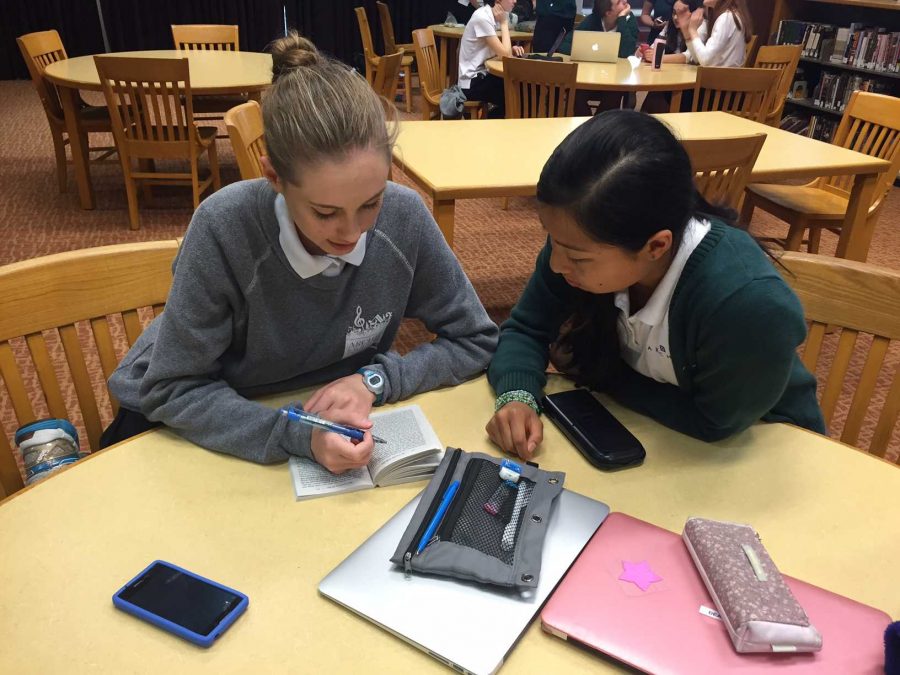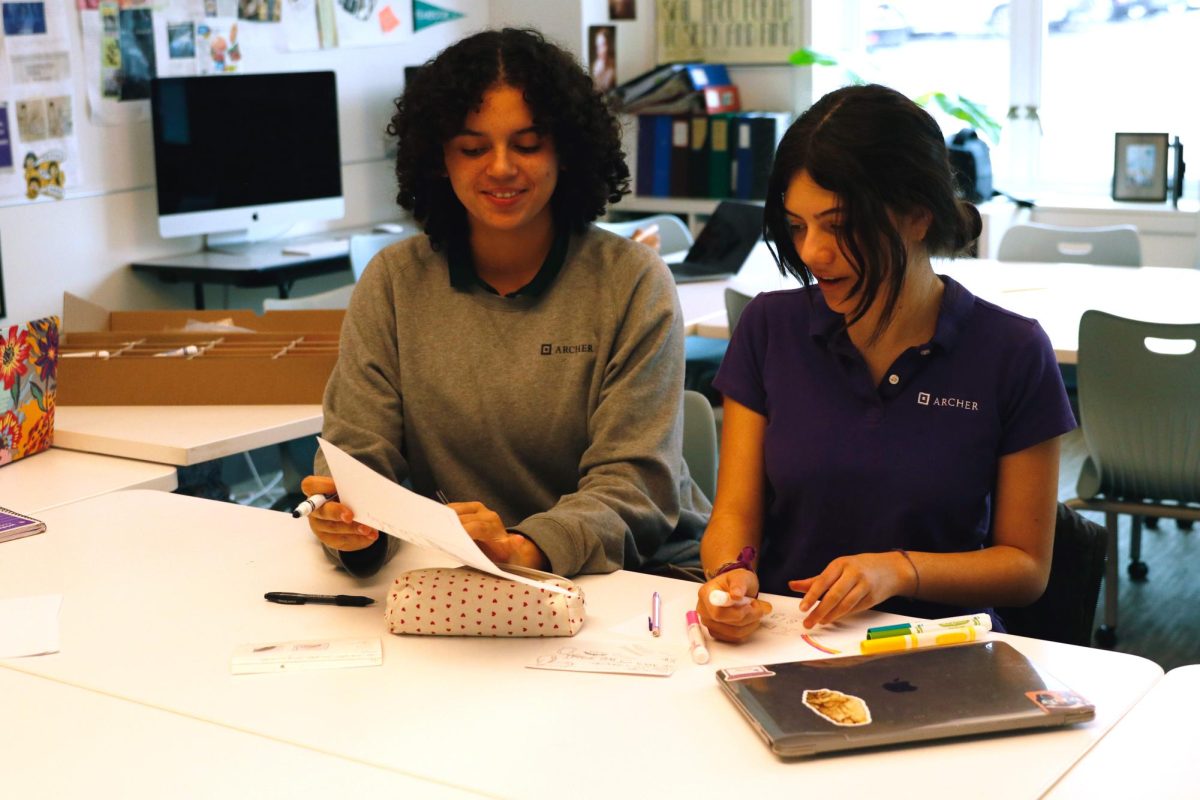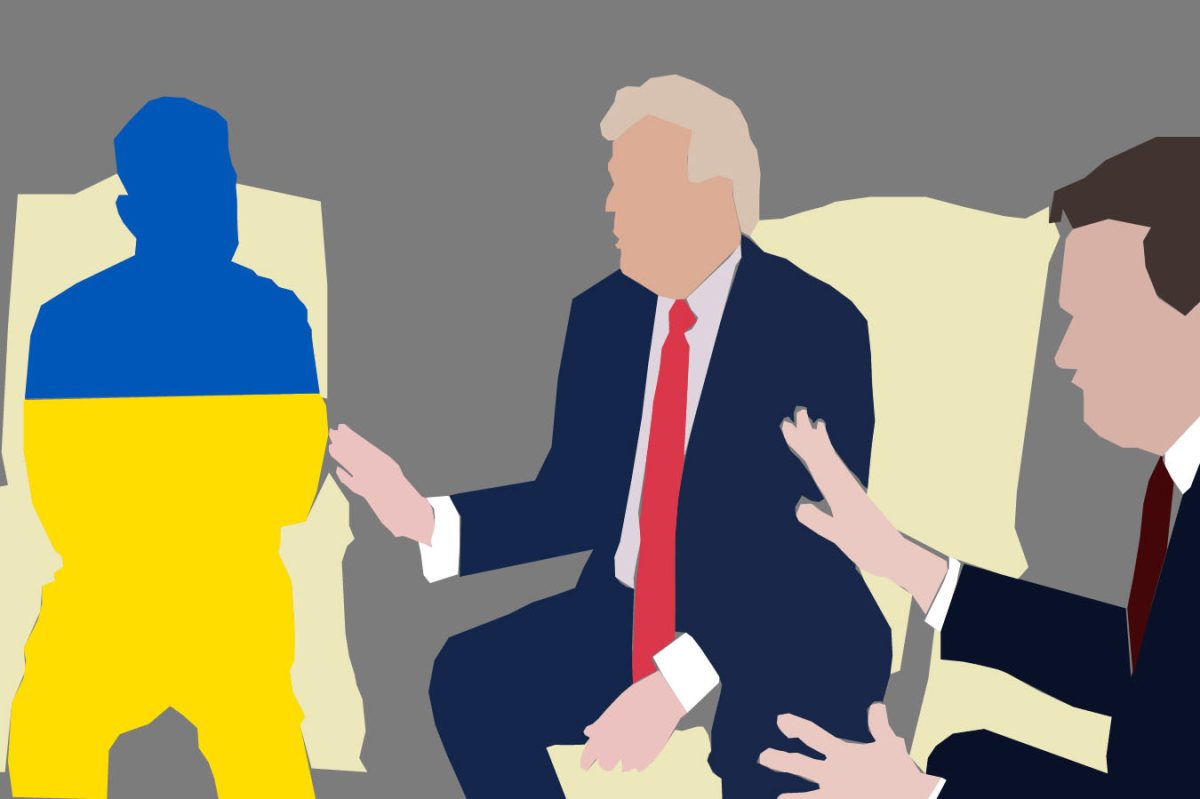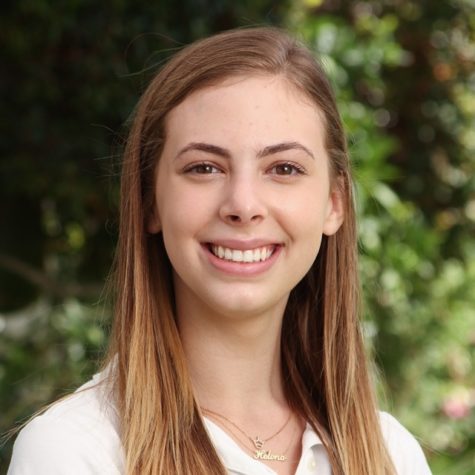As the clock hits 3:15 p.m., upper and middle schoolers alike swarm into room 127, eager to finish up studying or doing homework before leaving on the late bus.
In that two hour and 15-minute time period, Room 127 hosts Peer Academic Work Support (PAWS), a group run by Director of Learning Services Catie Chase and alongside upper school peer tutor volunteers.
“The idea of PAWS … was to have a location at school on campus accessible to anyone, whether you’re in middle school, upper school, whether you have accommodations, or you’re a superstar student,” Chase said. “[It’s] really for anyone no matter what level you’re at. The idea was that it was on-campus and that it was free and that all students have access to support and being mentored for their academics.”
According to Chase, they didn’t want to call it “Homework Club” because that would not intrigue students to join, although essentially in structure, it is a homework club.
PAWS takes place four times a week, Monday through Thursday. While working on homework and studying for tests, students can collaborate, support one another and turn to tutors or faculty members for assistance.
“The idea is to just get your work done. It’s just a great safe environment so that you can go home and you can do other fun things. That’s kind of I try to ‘sell’ it especially to our middle schoolers,” Chase said. “Can you imagine getting your homework done at school and going home and you can cook with your mom, or take a hot shower, watch your favorite T.V. shows and just kind of unwind? That’s the goal.”
Additionally, teachers allow students to take make-up tests during this after-school period.
“Often times students are absent, or they are away for sports, or they are on a trip with their family and there is a lot of make-up work that needs to be done, so PAWS has really created a great environment for students and teachers to use that time for making up assessments,” Chase said.
Chase describes PAWS as a sisterhood. “You can really see that. If the peer tutor can’t figure it out that’s when they ask the faculty member, and if that doesn’t work then we are able to go upstairs to a classroom and ask the teacher, or send an email out.”
There is a one-page application process for upper school students who are interested in peer tutoring, which includes questions such as “Why are you interested in tutoring?” and “What is your background in tutoring?”
Additionally, students must submit two teacher recommendation letters and meet with Chase to discuss their interest further.
“I have dyslexia and was tutored most of the early half of my life, so I know what it’s like to need help and how frustrating school work can be sometimes,” Reanna Wauer ’16 said. “I joined PAWS because I knew how valuable one on one help was for me, and it was important to me that more people had that opportunity if they needed it.”
Just from tutoring, upper schoolers can fulfill half of their allowed on-campus community service credits.
“[Peer tutoring] is a great little hobby and skill, and I think you also learn content a lot more when you are teaching it to someone else,” Chase said.










